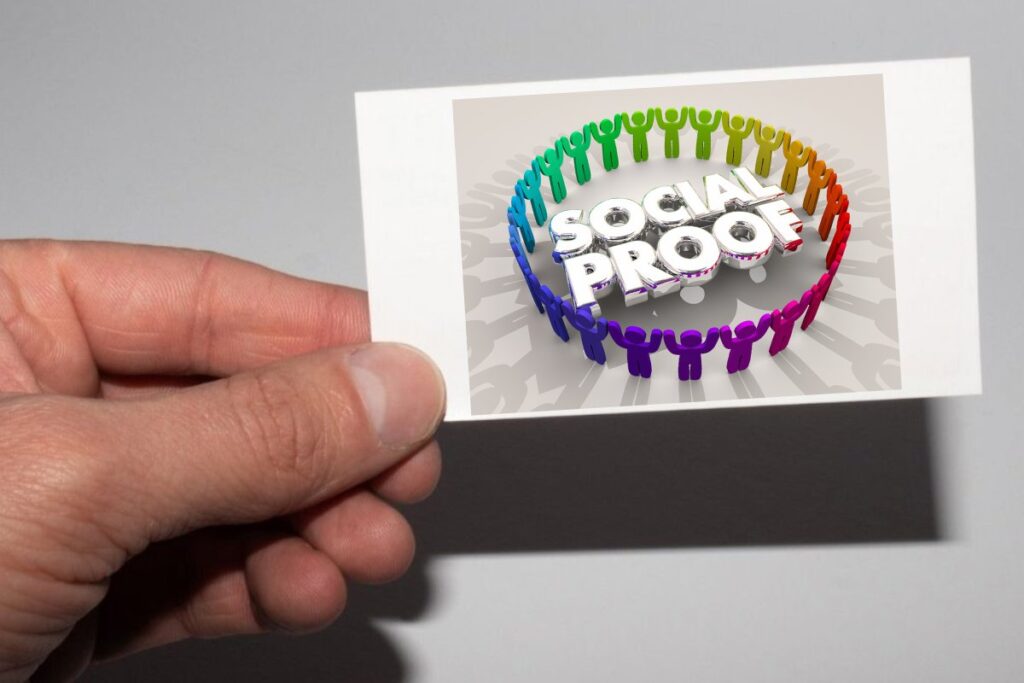When potential customers evaluate a SaaS product, they don’t just rely on marketing claims—they look for proof. Social proof, in the form of testimonials and case studies, is one of the most powerful ways to build trust and influence decision-making. It provides real-world validation, demonstrating how a product delivers results for businesses and individuals alike.
Why Social Proof Matters for SaaS
Unlike physical products, SaaS solutions are intangible. Prospective customers can’t hold them, try them on, or see immediate results before making a commitment. Instead, they rely on the experiences of others to assess value and credibility.
Social proof reassures buyers that they are making the right decision. It addresses doubts, reduces perceived risks, and creates confidence in a company’s ability to deliver on its promises. When a SaaS company effectively showcases testimonials and case studies, it strengthens its reputation and improves conversion rates.
How Testimonials Influence Buying Decisions
Testimonials provide short, direct endorsements from satisfied customers. They serve as quick wins in the trust-building process, giving prospects a sense of security. However, not all testimonials are equally effective.
For a testimonial to be impactful, it should:
- Be specific about the benefits and results achieved
- Include the customer’s name, company, and position (when possible)
- Highlight a key challenge the software helped overcome
- Feel authentic and relatable
Adding video testimonials can further enhance credibility. Seeing and hearing real customers share their experiences makes the message more persuasive and engaging. Many SaaS companies work with a marketing agency for SaaS to refine their testimonial strategy and ensure they capture compelling customer stories.
Case Studies: Turning Success Stories into Trust-Building Tools
While testimonials offer quick validation, case studies provide deeper insights into how a product solves real-world problems. They tell a structured story, walking prospects through the customer’s journey from challenge to solution.
A strong case study follows a clear format:
- The Challenge: What problem was the customer facing before adopting the software?
- The Solution: How did the SaaS product address the issue?
- The Results: What measurable improvements did the customer experience?
Quantifiable results—such as increased revenue, improved efficiency, or reduced costs—make case studies more compelling. The more detailed and data-driven the success story, the more powerful the impact. A well-crafted case study can serve as a persuasive sales tool, especially for prospects evaluating multiple solutions.
Where to Use Testimonials and Case Studies for Maximum Impact
Strategically placing social proof throughout the customer journey ensures it reaches prospects when they need it most. Some of the best placements include:
- Landing Pages: Reinforcing credibility right before a visitor takes action
- Product Pages: Providing reassurance that the solution delivers as promised
- Pricing Pages: Reducing hesitation at the decision-making stage
- Email Campaigns: Highlighting success stories in nurturing sequences
- Sales Presentations: Giving sales teams concrete examples to share with prospects
- LinkedIn and Social Media: Showcasing customer wins to a broader audience
Integrating testimonials and case studies into multiple touchpoints helps maximize their influence. A marketing agency for SaaS can provide guidance on optimizing placement for the best conversion rates.
Encouraging Customers to Share Their Success
Many happy customers are willing to share their positive experiences, but they often need a nudge. SaaS companies can encourage testimonials and case studies by:
- Reaching out to satisfied users after they’ve achieved success with the product
- Offering incentives such as discounts, extended features, or exposure for their brand
- Making the process easy by providing a structured format or conducting interviews
- Highlighting customer success as a partnership, rather than a favor
When customers feel valued and appreciated, they are more likely to participate in case studies and testimonials, helping SaaS companies continuously build trust.
Final Thoughts
Social proof is one of the most powerful tools for SaaS businesses looking to establish credibility and increase conversions. Testimonials provide quick validation, while case studies offer in-depth proof of success. When strategically placed and thoughtfully crafted, they can make a significant impact on a company’s ability to attract and retain customers. For SaaS businesses looking to refine their approach, partnering with a marketing agency for SaaS can ensure they leverage social proof effectively for long-term growth.

